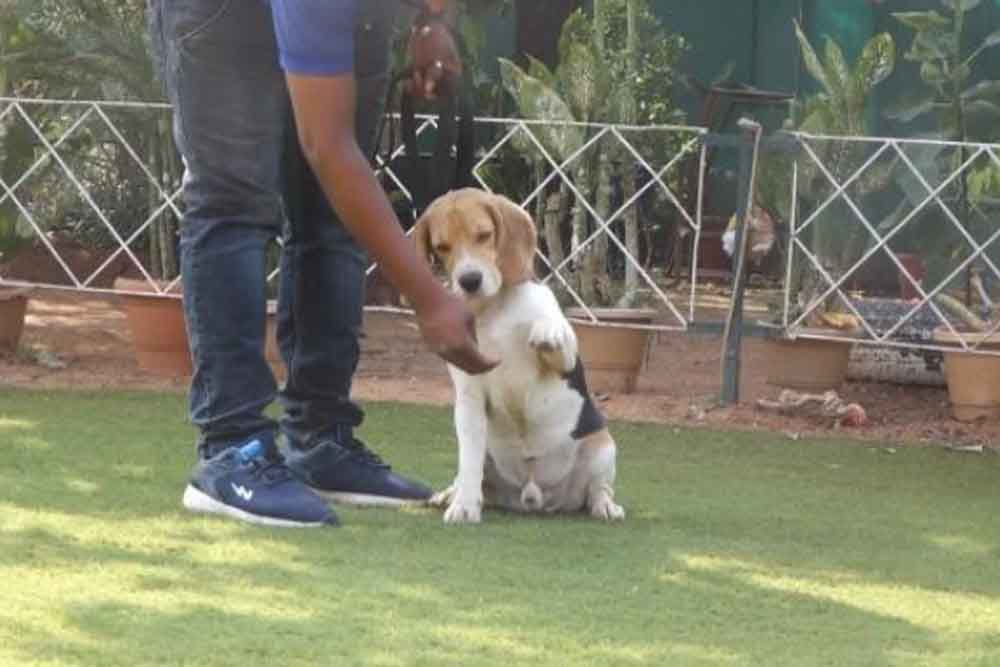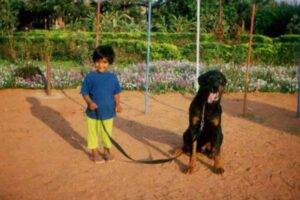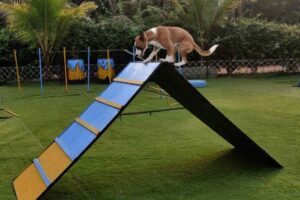Beagle is a very popular breed in India today and not without reason. Due to their short coat and size, it is a preferred breed for many pet parents living in flats and looking for a medium-sized dog. However, the appeal of the beagle truly lies in their personality! While each dog is unique and all pups are energetic, there is a certain charm in a beagle that grabs the attention of everyone around them.
Like any other dog, a beagle needs to be trained to build a constructive relationship, impart life skills, increase amiability, circumvent problematic behaviors, and improve loyalty and camaraderie. Training your beagle is essential to a happy, healthy life for you both.
We need to be aware that the beagle was bred to be a good hunting dog, to be brainy, active, strong-minded and to have an irrepressible desire to be part of a pack. These great qualities can sometimes transform into problem behaviors, if they are not attended to in time.
In this article, I will address some of the common behaviour problems faced by beagle parents.
Howling / Making a noise / Barking incessantly
When a beagle barks very often it turns into a howl. For a relatively small breed, a beagle’s bark can be pretty loud and disconcerting, that is how the breed is. The problem to be solved here is not the howling per se, but rather the stress that is causing the dog to vocalise his anguish.
There are many reasons why your beagle would get into a fit of barking and howling. The most common are separation anxiety, attention-seeking vocalization, Stress caused by environmental factors- could be new people, sounds, elevator sound, doorbell, knocking or anything that your dog develops a phobia against.
Separation anxiety is something we don’t even realise our dog has, as he shows it in our absence. In my experience, the root of many behavioural problems lies in separation anxiety. Barking/howling is just one of them. The solution is to gradually teach your dog to stay alone. Initially, you could start with a cage/ crate or pen and then graduate to a room and finally the whole house. Similarly, the duration should be a minute initially – when you go away from the dog and come back and calmly reward him. It is important not to reward with a game/toy or any excitement on your return as anticipation of the excitement will only make it that much more difficult to remain calm in your absence.
While you are away you want your dog to just be calm and relaxed, so you need to spend time to teach him to be calm. This can be achieved by rewarding calm behaviour whenever you see it during the day. Just quietly and gently place a reward in front of the dog and encourage calmness. In your presence that can be extended to calmness in your absence too. This calmness training will also help in solving any existing or potential attention-seeking barking in your dog.
Stress caused by environmental factors can be reduced drastically by gradually accustoming the dog to the stressors. Habituation is a gradual process, but if you are consistent, you will be able to teach your dog to be comfortable in previously stressful situations. This will help reduce his barking and howling when stressed.
Destructive Chewing / Easily Bored/ Poorly housebreaking
Similarly, separation anxiety manifests itself in destructive behaviour. This is often interpreted as the dog being easily bored. At times the problem lies in not teaching house rules to the dog.
I have already explained how to deal with separation anxiety above. To teach house rules we need to not only tell the dog what NOT to do but also, we must let him know what he MAY do. The earlier we start the easier it is for everyone concerned.
In case a dog is indulging in undesired behaviour in our presence we would use the opportunity to teach him what is acceptable and what is not. Immediately interrupt the behaviour using a distracting noise like clicking of the tongue or air kisses noise. You could also stop the unwanted behaviour by using previously trained behaviours like recall, drop it, leave it. These behaviours should have been taught using positive reinforcement. Do not reward the dog immediately after interrupting as he may connect the undesired behaviour to the reward. Give treats for alternate behaviours through the day, don’t wait just for the moment he shows undesired behaviour.
Remember even if you use punishment, it will not be effective if you don’t show the dog what TO DO instead of the undesired behaviour. So, reward the desired behaviour whenever he exhibits it.
Digging
Beagles are hunting dogs and digging is part of their genetic code! Digging up your yard is usually a sign that the dog’s mental and physical needs are not met. Physical exercise and mental stimulation are great to build bonds, keep the dog healthy and expend his pent up energy.
I would suggest you create a dig area! Loosen up the soil in an area and hide some treat and toys there for him to dig and find his treats. In other areas, you could do some environmental control like creating physical barriers or adding some pet repellant like lemon peel to the soil (as dogs find it unpleasant)
Stubbornness
This is usually an interpretation by the owner when the dog doesn’t do what the owner expects him to. In most cases, it is a case of poor communication and training plans by the owner. Also, check your rewards are they worthwhile for the dog? I strongly advise using a lot of attractive food reward as the best tool to train your dog. During the training phase, keep small pouches of treats available at different places in your house. If the dog shows desirable behaviour – immediately reach out and give him a treat. No harm in him thinking he is in Candyland! Over time you could start replacing food reward with social reward (petting, praise) and toy rewards. By using food in training you will NOT create a dog who always needs food to obey you! Soon these become second nature for the dog, food is just a wonderfully stress-free way to teach your dog.
With all dogs and especially with beagles, it Is important to start early. It is never too late, but the earlier you start the better. Many of the behavioural problems are just self-reinforcing behaviour that dogs enjoy doing like chewing, barking. Ignoring them does not help, as they will gather a reinforcement history that will be difficult to get rid of the longer the dog has been rehearsing.
[Philip Butt is CEO of Commando College for Dogs and Trainers. Based out of Hyderabad, they regularly conduct international certified training courses for dog trainers, in conjunction with the Obedience & Agility Club and The Hyderabad Canine Club. He can be reached on philip@commandokennels.net.in]




